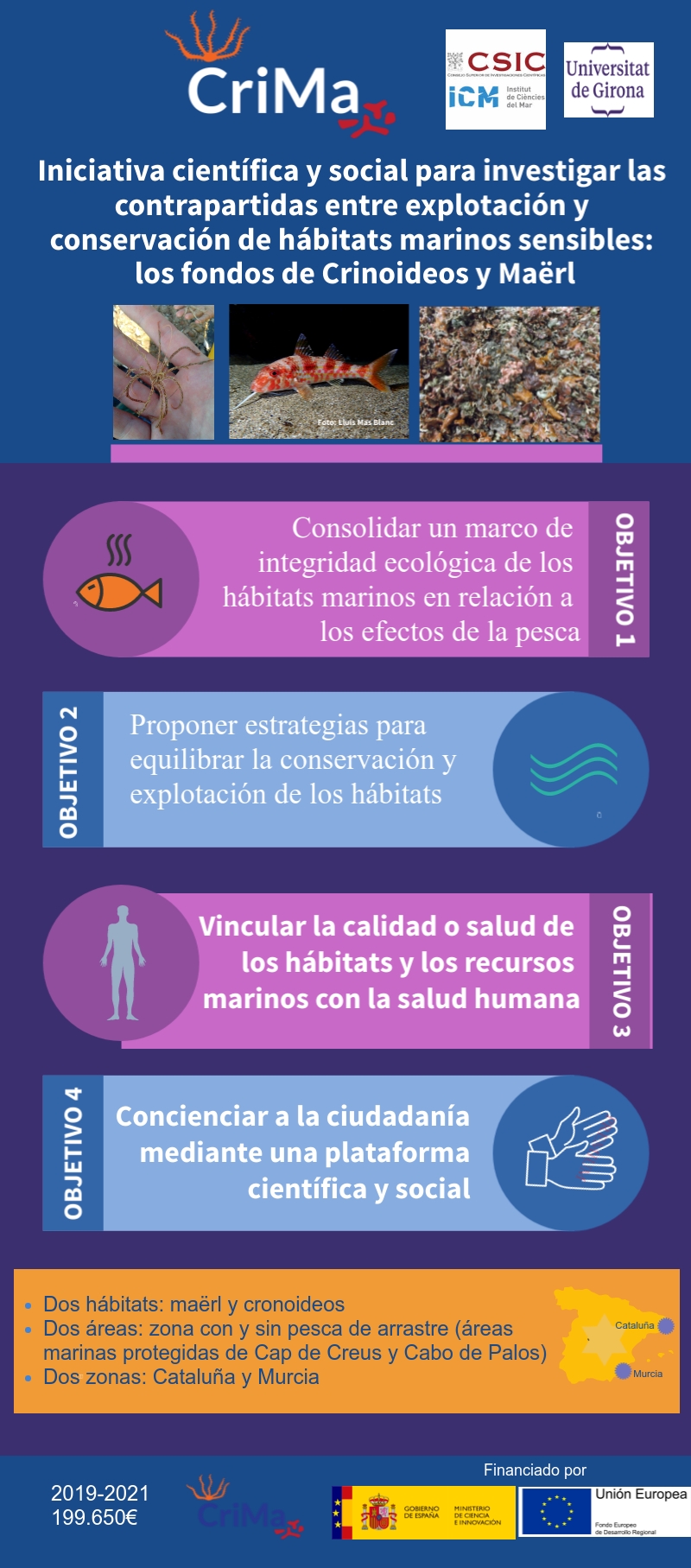CriMa

Scientific and social initiative to investigate the trade-offs between exploitation and conservation of sensitive marine habitats: Crinoids and Maërl bottoms
The project is carried out by researchers from the Institute of Marine Sciences (CSIC) and the SeaHealth research group of the University of Girona (UdG).

Coordination:
Dr. Montserrat Demestre (ICM-CSIC) and Dr. Josep Lloret (UdG).
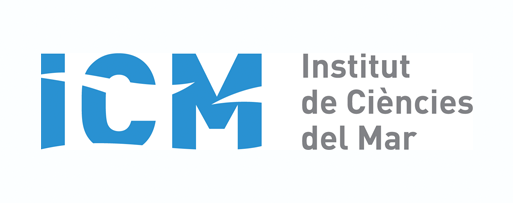
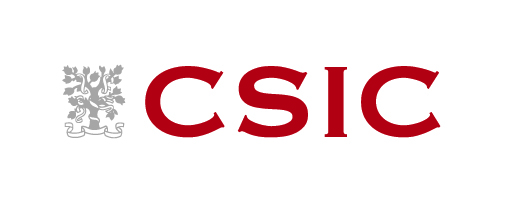
.png)
(1).png)
The CriMa project (Reference RTI2018–095770-B-100), funded by the Spanish Ministry of Science, Innovation and Universities, will carry out pioneering research on two of the most emblematic and fragile benthic habitats in the Mediterranean, and at the same time most impacted by fishing: crinoid beds and maërl bottoms.
CriMa will evaluate the Good Environmental Status (GES) of the crinoid and maërl habitats to advance in the recovery of their biodiversity and their health, and will identify the ecosystem goods and services that these habitats provide us in the form of healthy foods rich in omega 3 fatty acids.
Specifically, the purpose of CriMa is focused on 4 priority objectives:
- Consolidate a framework of ecological integrity of habitats based on the thresholds of acceptable changes that can be tolerated in relation to the effects of fishing.
- Propose responses with different strategies to balance the fragile balance that exists between the conservation and exploitation of these two habitats.
- Link the quality / health of marine habitats and their associated resources with human health.
- Raise public awareness through a scientific and social platform for knowledge transfer and encourage thee active participation of citizens.
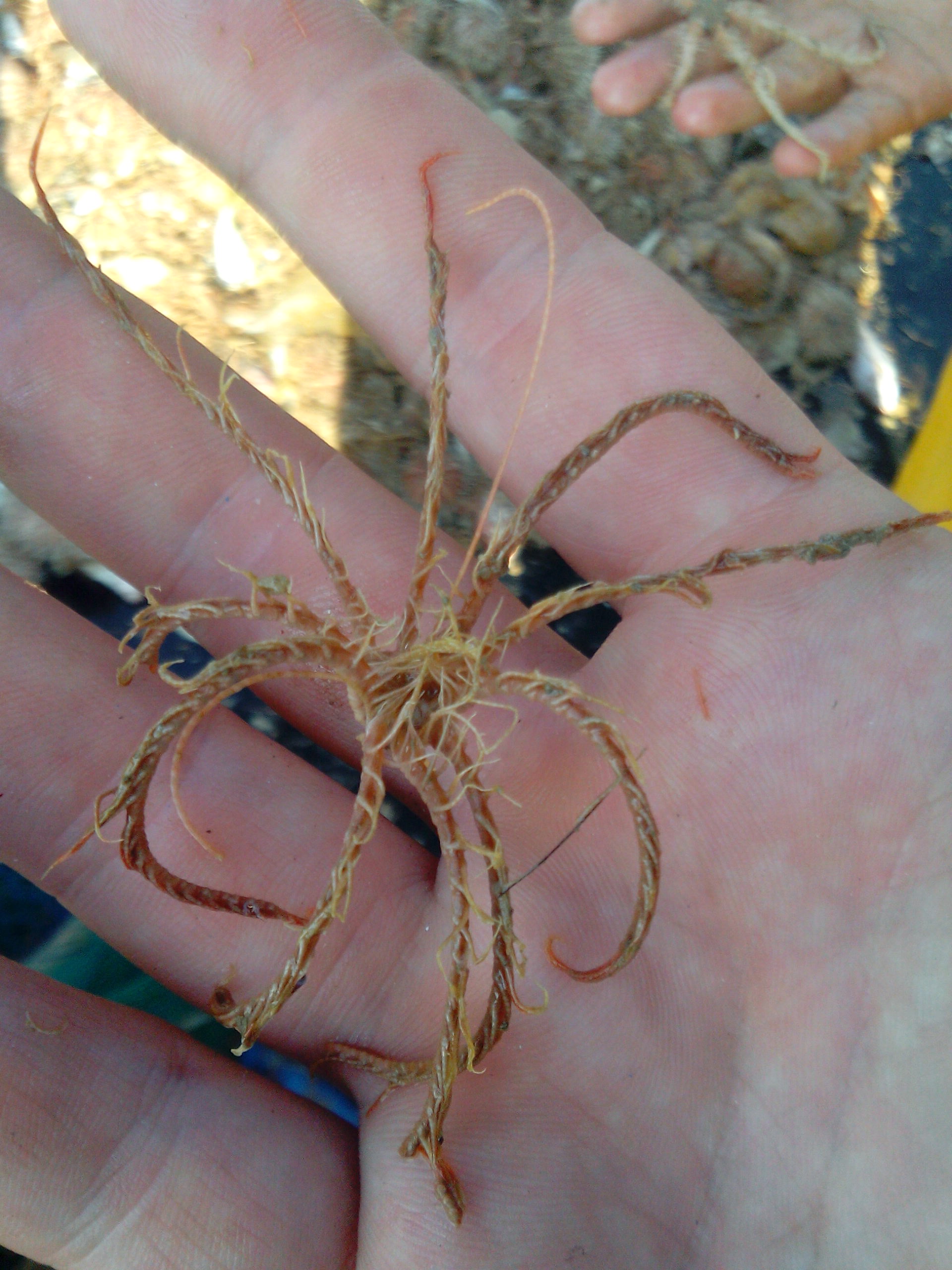
The destruction or degradation of marine habitats, especially due to trawling, leads to the loss of biodiversity and associated goods and services, with a negative impact on the well-being and health of people. In this sense, it is necessary to conserve the different goods and services that marine ecosystems provide us. A valuation framework is needed that not only considers the economic and social aspects but also people's health.
The project will be developed in two areas with great activity of artisanal fishing and trawling in the Spanish Mediterranean coast: to the north, the Catalan coast and to the south, the coast of Murcia. The project will consider the marine protected areas of Cap de Creus and Cabo de Palos.
For more information, see here.


